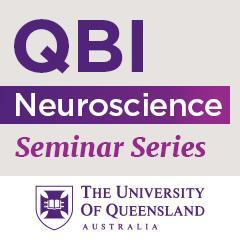Dr Eric Kim, USA : "Cortical pathology of Huntington's disease in the human brain & Nanoparticle-based sensors for neurobiology"

Speaker:
Dr Eric Kim
Northeastern University, Boston, USA
Title: "Cortical pathology of Huntington's disease in the human brain & Nanoparticle-based sensors for neurobiology"
Abstract:
Part I: The cellular basis of variable symptoms in Huntington's disease (HD) is unclear. One important possibility is that degeneration of pyramidal neurons and interneurons, which together play a major role in modulating cortical output to the basal ganglia, may play a significant role in the development of variable symptomatology in HD. My study aimed to examine whether symptom variability in HD is specifically associated with variable degeneration of cortical neurons.
Part II: Advances in optical probes and imaging methods have enabled entirely new possibilities for studying neural cells and circuits at the chemical level. As part of my postdoctoral studies, I was involved in fabricating and utilising optical nanoscale sensors (fluorescence and MRI) for imaging chemical signaling in the brain, specifically calcium ions, sodium ions, and neurotransmitter acetylcholine.
Northeastern University, Boston, USA
Title: "Cortical pathology of Huntington's disease in the human brain & Nanoparticle-based sensors for neurobiology"
Abstract:
Part I: The cellular basis of variable symptoms in Huntington's disease (HD) is unclear. One important possibility is that degeneration of pyramidal neurons and interneurons, which together play a major role in modulating cortical output to the basal ganglia, may play a significant role in the development of variable symptomatology in HD. My study aimed to examine whether symptom variability in HD is specifically associated with variable degeneration of cortical neurons.
Part II: Advances in optical probes and imaging methods have enabled entirely new possibilities for studying neural cells and circuits at the chemical level. As part of my postdoctoral studies, I was involved in fabricating and utilising optical nanoscale sensors (fluorescence and MRI) for imaging chemical signaling in the brain, specifically calcium ions, sodium ions, and neurotransmitter acetylcholine.
About Neuroscience Seminars
Neuroscience seminars at the QBI play a major role in the advancement of neuroscience in the Asia-Pacific region. The primary goal of these seminars is to promote excellence in neuroscience through the exchange of ideas, establishing new collaborations and augmenting partnerships already in place.
Seminars in the QBI Auditorium on Level 7 are held on Wednesdays at 12-1pm, which are sometimes simulcast on Zoom (with approval from the speaker). We also occassionally hold seminars from international speakers via Zoom. The days and times of these seminars will vary depending on the time zone of the speaker. Please see each seminar listed below for details.



